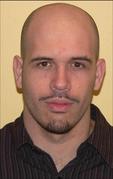Jodra Luque, Jose Luis
Datos personales

Dirección: Alda. de Urquijo s/n. C.P.: 48013. Bilbao
Despacho: 3A21
Email: joseluis.jodra@ehu.es
Teléfono: +34 94 601 3958
Fax: +34 94 601 4259
Títulos académicos
Titulación universitaria
Título: Ingeniería Informática
Centro: Universidad del País Vasco
Fecha de obtención: 2001
Doctorado
Título del programa: Tecnologías de la Información y Comunicaciones en Redes Móviles
Fecha de obtención DEA: 2005
Título de la tesis: -
Fecha de obtención: -
Masters
Título: Master en Administración y Gestión de Empresas (MBA)
Centro: Escuela de Administración de Empresas de Cataluña (EAE) adscrita a la Universidad Politécnica de Cataluña (UPC)
Fecha de obtención: Junio 2002
